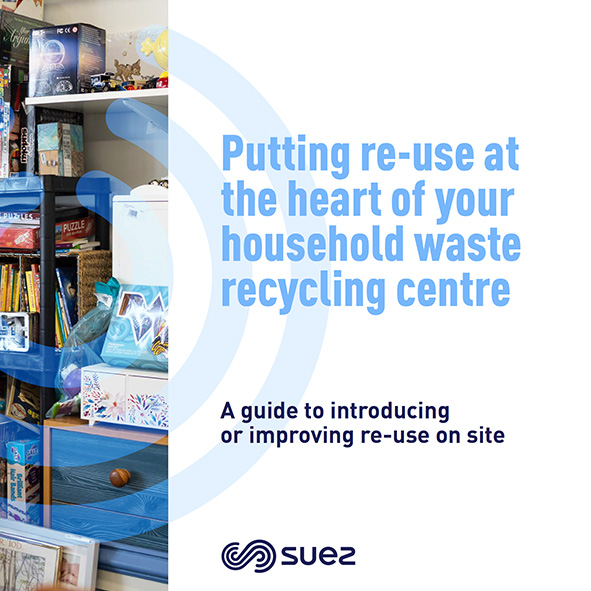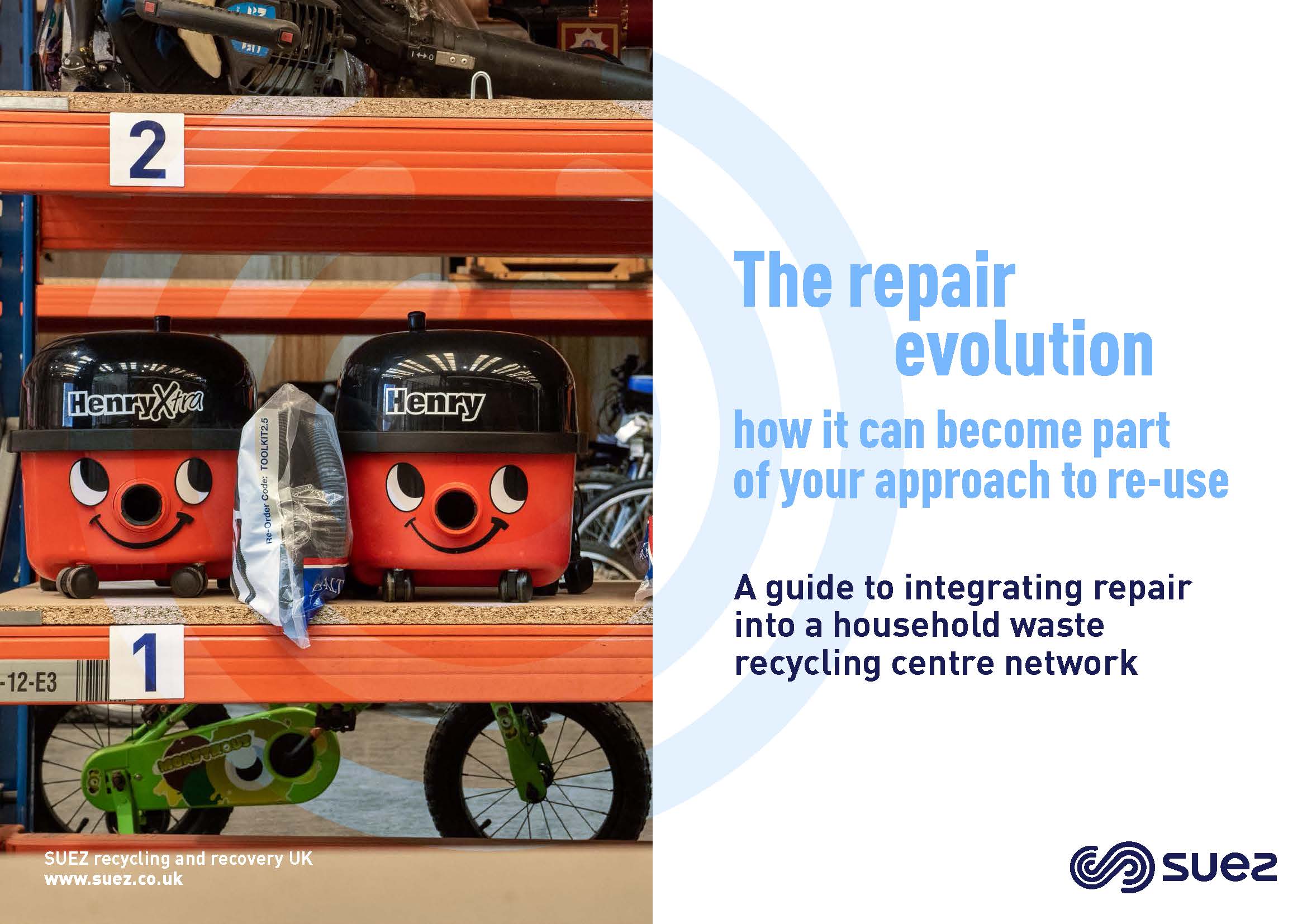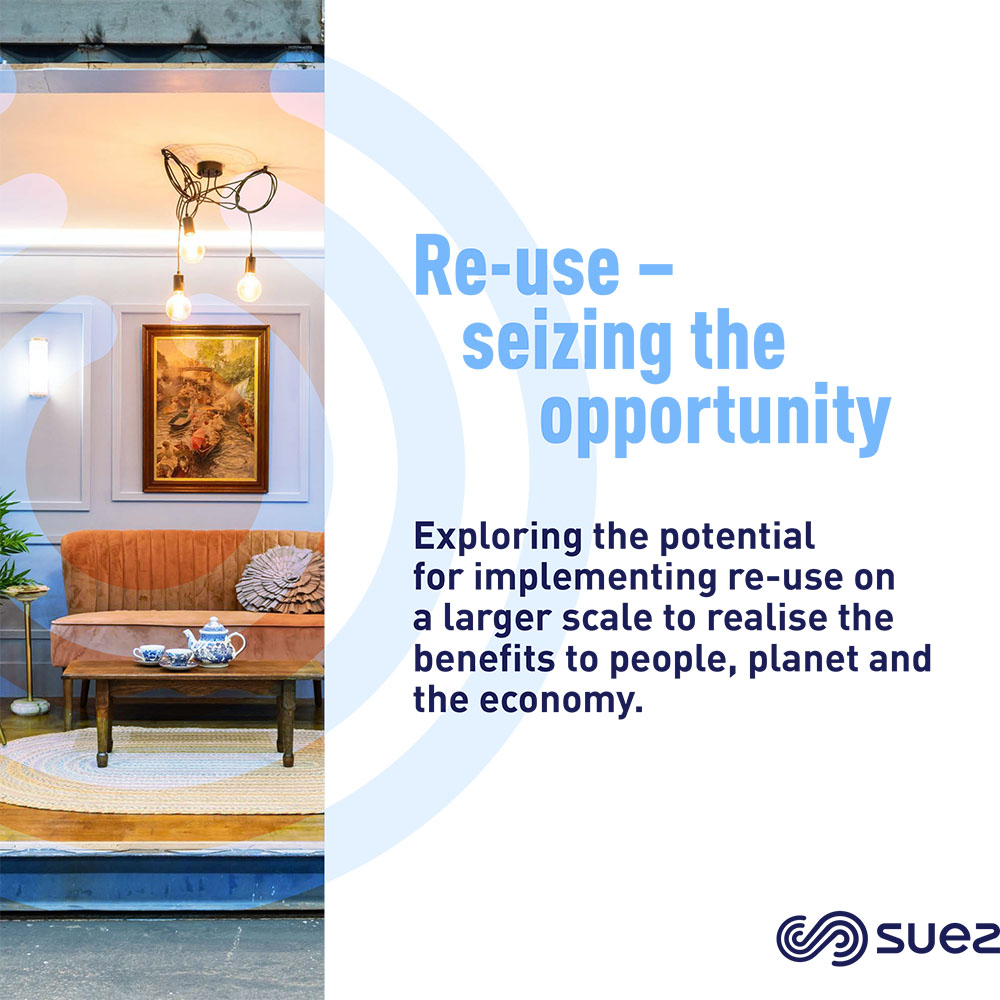Put re-use at the heart of the emerging circular economy
Re-use sits near the top of the waste hierarchy, but its role has been downplayed in national policy and local strategies for managing waste and material resources.
SUEZ recycling and recovery UK believes that discarded goods – not least the millions of tonnes of household waste items that end up in recycling centres each year – should be reused to generate economic, environmental and social value as part of the circular economy.
A re-use hub and shop network linked to community projects and partners
We operate household waste recycling centres on behalf of local authorities and also collect ‘bulky items’ in some areas. From furniture to electrical goods, many items are suitable for re-use, when cleaned and repaired. As of spring 2021, we operated 27 re-use shops, often located at household waste recycling centres, where these recovered goods are sold to local residents. In several areas, such as Doncaster and Surrey, social enterprises providing training and jobs for local unemployed and ex-offenders, are also involved in our re-use activities.
Our most comprehensive and ambitious re-use strategy yet is being rolled out in Greater Manchester.
As part of our contract with the Combined Authority and its 50-plus social commitments, we have developed a central re-use hub. It is equipped with repair pods for furniture, electrical and other items, storage and skills training areas, a visitors’ centre and café, and space for hosting community events.
The hub serves a network of re-use shops operating on a not-for-profit basis under the brand ‘Renew’. All proceeds from sales go to the Recycling for Greater Manchester (R4GM) Community Fund. This is topped up by SUEZ to provide a minimum annual contribution of £220,000.
We are also building partnerships with local community organisations, including social enterprises, and Recycling Lives, which supports residents in need, rehabilitates ex-offenders and redistributes food.
Our aims are:
- To reclaim and renew the value of household items, through repair and upcycling, avoiding the destruction of these resources through disposal.
- To provide goods to residents at affordable prices for their homes and gardens.
- To create worthwhile jobs for local people, and skills training, in service of their local communities.
- To involve and support community groups, social enterprises and like-minded businesses, and charities in activities that benefit the local economy and society.
- To promote public understanding of the circular economy and the role of re-use and waste reduction in advancing sustainability.
- To host educational activities, workshops, events and provide a creative space for residents at the re-use hub.
The results
According to our latest audited figures (which pre-date the Greater Manchester contract), our re-use activities resulted in the diversion of 2,400 tonnes of items in 2019. We estimate that the environmental, economic and social benefits realised were an estimated £33 million (£13,750 per tonne diverted).
In Doncaster, more than 20,000 low-income households have benefitted from low-cost, good-quality furniture and electrical goods. Our partner, Doncaster Refurnish, has provided work placements for more than 60 trainees and 100 ex-offenders.
In Surrey, our five Revive shops generated a gross revenue of more than £700,000 from the sale of electrical items and a total financial benefit (excluding social value) to Surrey County Council of £323,000.
In Greater Manchester, we expect 600 tonnes to be diverted from waste to recycling each year, supporting its target to be a carbon-neutral city-region by 2038. Twenty-one community groups have benefitted from the R4GM Fund. The shops and renew hub also created 10 green jobs, with more to come.


